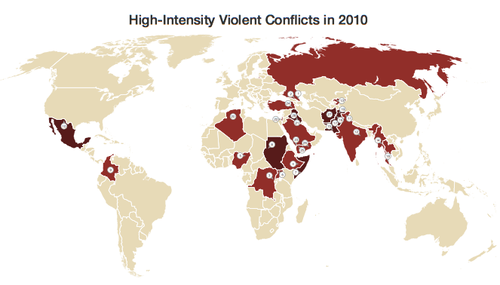How best to choose a new committee chair?
Some years ago I read an interesting article in The Economist on how companies plan their succession: Some of the most successful multinationals have people in the rear seats waiting for a specific date to take over a leadership position. However, sometimes unforseeable events lead to early retirement and replacements need to be found. Sometimes these replacements are outsiders who have earned their merits by leading another company to success. They bring in fresh and outside views and experiences how things are run elsewere. Unfortunately these outsiders may also have little understanding of their new company's culture and the very specific field it deals with. In the end, the article concluded, an internal succession plan should be preferred.
Let's look at CISV: In the committee I know best (the IPP committee), we've routinely chosen a successor among the existing members, and this has worked well for the last ten years. Sometimes, like in Lars/NOR's case (2005-2009) we've had him in position to take over two years in advance, same goes for Soren/DEN who took over after him. What struck me as odd, that the three of us (me, Lars and Soren) were all pretty similar in character, culture, CISV-politicial views and vision. Of course it's only natural that a person in a leadership position would support somebody who is most likely to continue the way of working he did. Also, this process leads to continuity and to a common understanding what the IPP committee is like. Nevertheless, it also made the committee very closed to people who are different in (working) culture and I'm not trying to say that we discouraged others from joining, but the IPP team was always a very homogenous bunch of people.
Now, when Soeren's job was open for replacement last year, the IEC suggested that the job is openly announced, just like it was done for the positions in the Educational and the Profile Raising Department recently. I know that members of the IPP committee found this odd, since it had been a tradition that the chair position would be filled by an existing member. And so the chose to do it the traditional way: Sarah, a long-time committee member, was very well qualified, and took over promptly.
Even though the Economist would surely support this way of filling the position, I think it is worth spending some time on the other option: Open recruitment (meaning publishing a formal job vacancy in i.e. the IO update and on the website) for the newly founded committees was probably born out of necessity. But also for existing committees this could be a chance of opening up leadership positions to people who haven't been around at AIMs for ages, and therefore being more inclusive. Beyond that, theres all the other advantages mentioned above of bringing in a new person
Personally I think, this would mostly not work well, because there just isn't an abundance of people who shout "me please" when such a position is available, and usually people have to be nudged towards such a role. So a formal "application process", as for a paid job just wouldn't result in tons of applications. And of course, the internal chemistry of a team is probably a high value, that may easily be disrupted by bringing in someone unknown to the group.
In the end, I think a good solution would be to make it public (and by this I mean more than an announcement in the MWM report) that a leadership position is open, and if there are "outsiders" interested, at least they get a formal chance of applying. How in the end, a selection process should happen if more than one person applies remains to be answered.
(Kudos to Sarah for the idea to this article)




